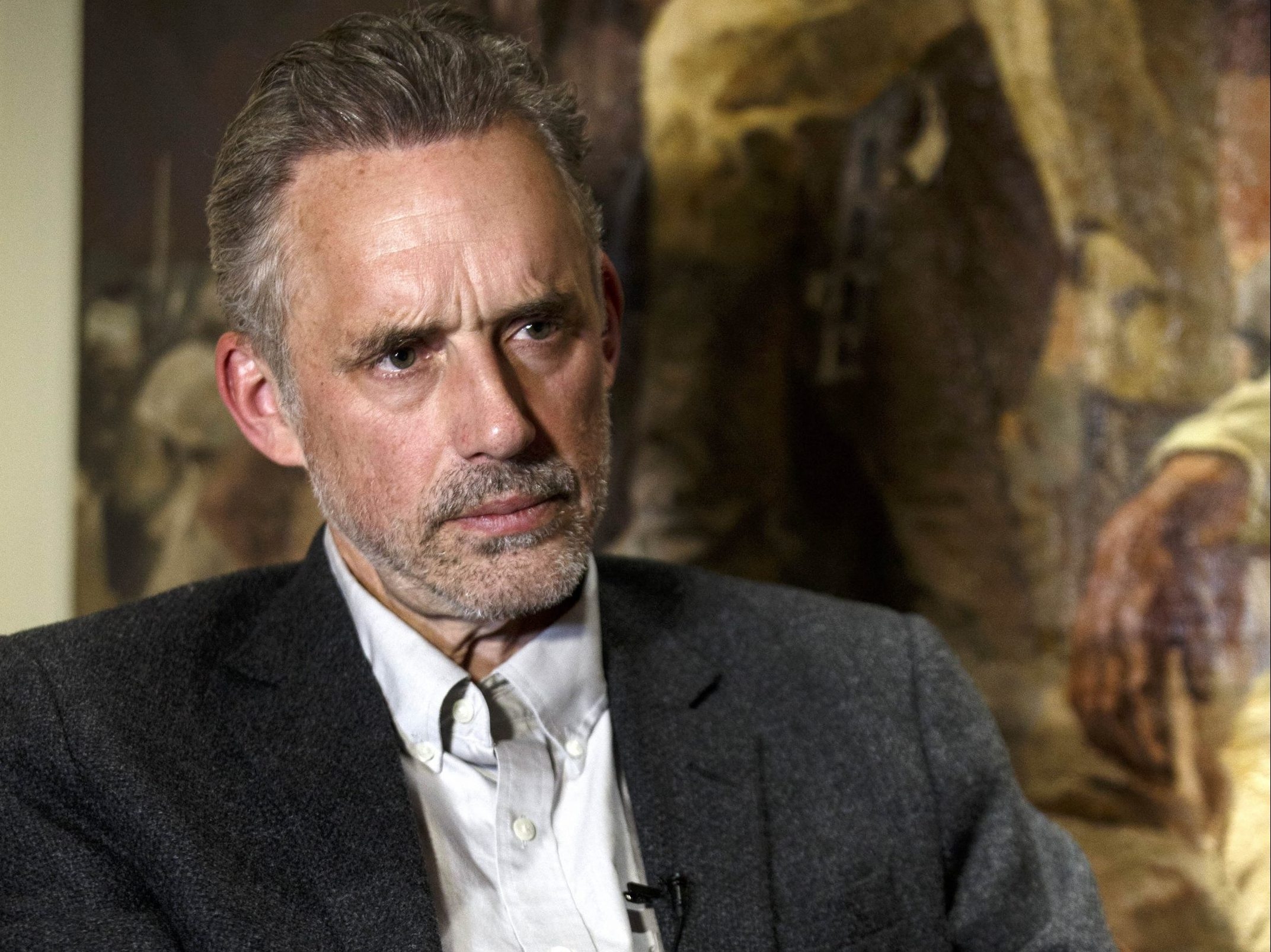Jordan Peterson - Psychologist And Thinker
Have you ever stopped to consider the voices that truly shape our modern conversations, the people who make us pause and think a little differently about the world around us? There are, in some respects, certain individuals whose ideas seem to spread far and wide, touching upon countless lives. One such figure who has gained considerable attention across the globe is Jordan Peterson, a person known for his work as a psychologist, a writer, and someone who shares knowledge through online platforms.
His published works, for instance, including volumes like "12 Rules for Life" and "Beyond Order," have found their way into the hands of many millions of people across various countries. These books, you know, have become quite popular, suggesting that the thoughts and insights he shares really connect with what a lot of folks are looking for. He's also, to be honest, a professor emeritus at the University of Toronto, which means he held a teaching position there for a very long time before stepping back from active instruction.
Beyond his written contributions, his voice can also be heard regularly through his podcast, which, as a matter of fact, often sits at the very top of educational listening charts. This reach, both through his books and his audio discussions, suggests that his perspectives on life, on how we should behave, and on how we might make sense of things, really resonate with a broad audience, prompting conversations and reflections for many.
Table of Contents
- Biography - Who is Jordan Peterson?
- The Academic Journey of Jordan Peterson
- What Makes Jordan Peterson's Books Resonate?
- The Impact of Jordan Peterson's Published Works
- Jordan Peterson's Voice in Digital Spaces
- The Popularity of the Jordan Peterson Podcast
- How Does Jordan Peterson See Learning and Truth?
- Personal Details and Bio Data
Biography - Who is Jordan Peterson?
So, who exactly is this person, Jordan Peterson, that so many people are talking about? He is, in essence, a well-known psychologist, a writer who puts his thoughts down on paper, and someone who teaches through online platforms. His professional life has, you know, been dedicated to understanding the human mind and sharing those observations with others. He's not just a casual commentator; he has a strong academic foundation that shapes his perspectives and the way he communicates complex ideas to a wider public.
His background as a professor at the University of Toronto, where he became a professor emeritus, shows a long commitment to higher learning and to guiding young minds. This kind of experience, you might say, provides a solid basis for the thoughts he shares, making them something more than just personal opinions. He's spent, apparently, a great deal of time, about fourteen years, just doing research, digging deep into various subjects to build his knowledge base.
The Academic Journey of Jordan Peterson
His academic path, you see, has taken him through some interesting places. He once spent time living in the United States, and when he came back to Canada from what he considered to be a very good university in America to one of Canada's own, he brought along three particularly bright students. This detail, to be honest, paints a picture of someone who not only seeks knowledge for himself but also actively mentors and brings others along on the intellectual journey, fostering new thinkers.
His scholarly interests, as a matter of fact, have touched upon a wide range of subjects, including a deep exploration into the history of religious ideas. This suggests that his thinking isn't confined to just one area of psychology, but rather looks at the broader human experience, including the stories and beliefs that have shaped civilizations over long stretches of time. It's almost, in a way, like he's trying to piece together a bigger picture of what it means to be human.
What Makes Jordan Peterson's Books Resonate?
What is it, then, that gives Jordan Peterson's published works such a strong connection with people? His books, like the very popular "12 Rules for Life" and its follow-up, "Beyond Order," have, quite literally, sold millions of copies around the world. This level of success isn't just about selling books; it points to a profound impact his ideas are having on how people think about their own lives and the responsibilities they carry.
These books, you know, offer advice and perspectives that many find helpful for navigating the everyday challenges of existence. They discuss concepts that touch on personal responsibility, the pursuit of truth, and how individuals might bring more order into their own lives. It's almost as if he's providing a framework, a sort of guide, for people who are looking for ways to improve their circumstances and make sense of a sometimes confusing world.
The Impact of Jordan Peterson's Published Works
The widespread acceptance of Jordan Peterson's writings indicates that his approach to personal growth and societal issues strikes a chord with a great number of individuals. People seem to be looking for something that helps them put their lives in order, and his work, apparently, offers a way to think about that. He encourages, for instance, a kind of self-reflection that can lead to meaningful changes in how one lives and interacts with others.
His published thoughts often encourage individuals to consider their own actions and beliefs, rather than simply blaming external circumstances. This focus on personal agency, on what one can control and improve within oneself, is a message that, in some respects, seems to resonate deeply with those seeking a sense of purpose and direction. It’s a call, you might say, to take charge of one’s own path.
Jordan Peterson's Voice in Digital Spaces
Beyond his books, Jordan Peterson also makes his thoughts known through digital platforms, particularly his podcast. This format, you know, allows him to engage in longer, more detailed discussions than might be possible in other mediums. It's a way for him to share his insights and engage with a global audience directly, without the filters of traditional media outlets.
His podcast, as a matter of fact, frequently appears at the top of the charts in the education category, which shows just how many people are tuning in to hear what he has to say. This popularity, you see, isn't just about entertainment; it suggests that a lot of listeners are actively seeking out his perspectives on various topics, perhaps looking for something that makes them think or offers a new way of looking at things.
The Popularity of the Jordan Peterson Podcast
One particular episode, for instance, featured a discussion between Dr. Jordan B. Peterson and Piers Morgan, where they talked about things like the skill of conducting interviews, the profound importance of living truthfully, and the dangers of being overly eager to please others. They also, quite literally, went into considerable detail about the 2016 election and its implications. This kind of conversation, you know, highlights the depth and breadth of subjects covered on the podcast, from personal ethics to political events.
The podcast also serves as a platform for him to discuss current events and societal concerns, often with other prominent figures. He and Gregg Hurwitz, for example, have talked about what they see as the true enemy of the West, suggesting that we need to act now before it’s too late, and that no outside nation should be allowed to interfere. These discussions, you might say, often spark considerable debate and reflection among his listeners, prompting them to consider the world's challenges.
How Does Jordan Peterson See Learning and Truth?
How, then, does Jordan Peterson view the process of gaining knowledge and the very nature of truth itself? He has, in some respects, a rather interesting way of looking at learning, suggesting that "every bit of learning is a little death." This might sound a bit dramatic, but what he means is that each piece of new information, to be honest, challenges what you already thought you knew, forcing those older ideas to break down before something better can take their place.
This idea, you know, implies that genuine learning isn't just about adding facts; it's about a kind of transformation. It's about letting go of old ways of thinking so that new, more accurate understandings can be built. It's a process, you see, that can feel a bit unsettling, like a small ending, but it's also, quite literally, the path to growth and a more accurate picture of the world.
Personal Details and Bio Data
Here's a quick look at some personal details and biographical information about Jordan Peterson:
| Detail | Information |
|---|---|
| Profession | Psychologist, Author, Online Educator, Professor Emeritus |
| Affiliation | University of Toronto (Professor Emeritus) |
| Notable Works | "12 Rules for Life: An Antidote to Chaos", "Beyond Order: 12 More Rules for Life" |
| Online Presence | The Jordan B. Peterson Podcast, 'Mondays of Meaning' updates |
| Research Focus | Spent 14 years researching various topics |
It's also worth noting that he has, you know, created initiatives like 'Mondays of Meaning' to provide updates and notifications about new articles, videos, and other content. This helps keep his audience connected and informed about his ongoing work and thoughts. It's a way, you might say, for people to continue their engagement with his ideas.
He has also, in some respects, voiced concerns about certain societal trends. For example, he has suggested that people should be wary of their liberal values, stating that those they might see as friends could actually be like vultures waiting for their downfall. He has also, quite literally, spoken about watching the increasing presence of antisemitism, indicating a deep concern for these kinds of social issues.

Jordan Peterson on His Advice For Creative People - The Creative Echo

MANDEL: Jordan Peterson claims he's being muzzled by College of

Jordan Peterson